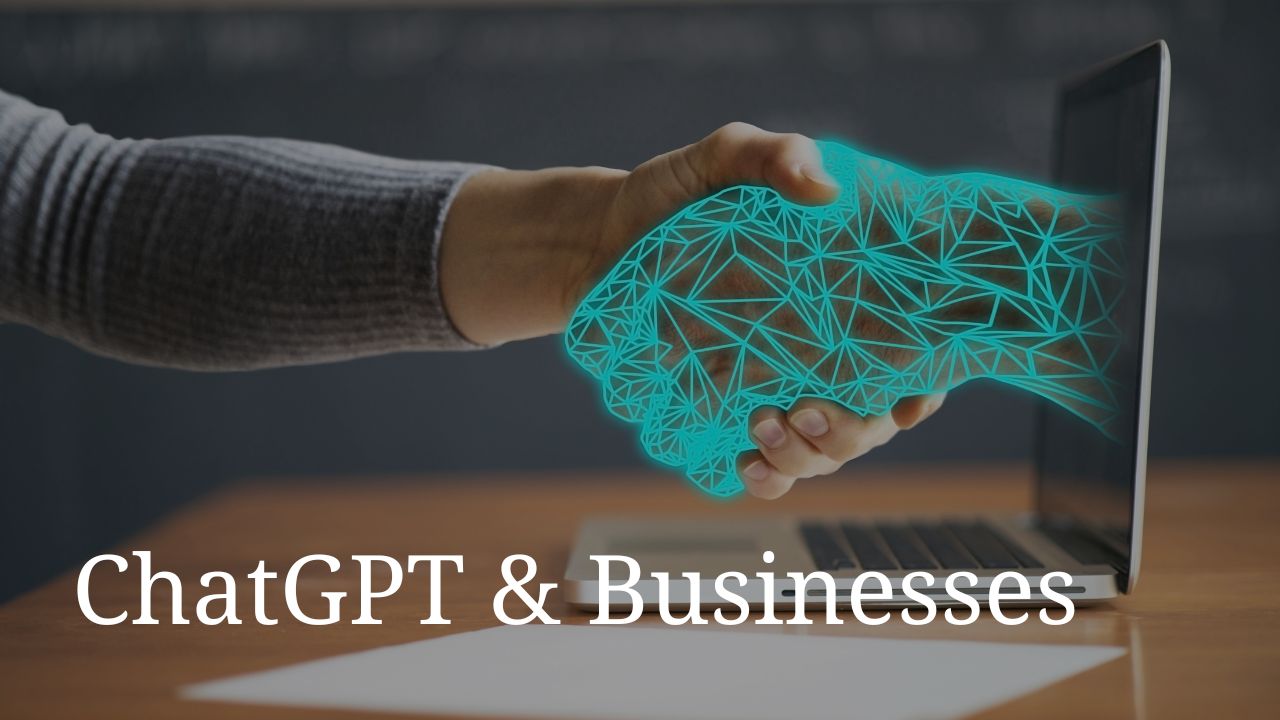The advent of conversational technology has changed the way businesses interact with customers. With the introduction of ChatGPT, a large language model developed by OpenAI, businesses can now offer a more personalised and engaging experience to their customers. In this article, we will explore how ChatGPT’s conversational technology will transform the way businesses operate in the future.
Conversational Interfaces
One of the major ways ChatGPT will change the way businesses operate is through the implementation of conversational interfaces. Conversational interfaces are a type of human-computer interaction that uses natural language processing and generation to simulate a conversation. By using ChatGPT, businesses can create chatbots that can interact with customers in a more human-like way. This will allow customers to get quick and accurate answers to their questions, and businesses to handle a larger volume of customer interactions more efficiently.
Customer Behaviour
Another way ChatGPT’s conversational technology will change the way businesses operate is by providing insights into customer behaviour. ChatGPT has the ability to analyse the conversations it has with customers, and use this information to understand customer needs and preferences. This data can then be used by businesses to improve their products and services, and to offer more personalised experiences to their customers.
Customer Support
ChatGPT’s conversational technology will also change the way businesses use customer support. With ChatGPT, businesses can provide 24/7 support to their customers, without the need for human agents. This will not only save businesses time and money, but it will also improve customer satisfaction by providing quick and efficient support.
Personal assistance is another area that ChatGPT will change. With its ability to provide personalised support, ChatGPT will help businesses offer a more engaging and efficient customer experience. ChatGPT’s personal assistance capabilities will allow businesses to offer customers a more human-like experience, and to provide a higher level of customer service.
Marketing
ChatGPT’s conversational technology will also change the way businesses market their products. With the ability to analyse customer behaviour, businesses can use ChatGPT to create targeted marketing campaigns that are more likely to resonate with their audience. This will result in a more efficient use of marketing resources, and a higher return on investment.
High-quality content is another area that ChatGPT will change. With its advanced natural language processing capabilities, ChatGPT can generate content that is both informative and engaging. This will enable businesses to create content that is more likely to resonate with their audience, and to provide customers with a more immersive and enjoyable experience.
Research
Research capabilities is another area that ChatGPT will revolutionise. With its ability to analyse large amounts of data and provide insights, ChatGPT will help businesses make informed decisions and stay ahead of the competition. ChatGPT’s research capabilities will allow businesses to access a wealth of information and insights, and to make better-informed decisions.
Software Development and Coding
Software development and coding is another area that ChatGPT will change. With its ability to automate coding tasks, ChatGPT will help businesses increase their efficiency and reduce the time it takes to develop new software. ChatGPT’s conversational technology will also help businesses create more innovative and sophisticated software, leading to a more competitive edge.
Data Processing
Finally, data processing is another area that ChatGPT will change. With its ability to analyse large amounts of data, ChatGPT will help businesses make sense of the data they collect, and to make informed decisions based on this information. ChatGPT’s data processing capabilities will help businesses improve their efficiency and effectiveness, and will allow them to make more informed decisions.
The Downside of ChatGPT
While ChatGPT’s conversational technology offers numerous benefits to businesses, it is important to acknowledge that there are also some potential downsides to this technology.
One potential downside of ChatGPT is the risk of job loss. As ChatGPT becomes more widespread, there is a possibility that it will automate certain tasks that are currently performed by human workers. This could result in job losses, and could have a negative impact on the job market.
Another potential downside of ChatGPT is the risk of data privacy and security. As ChatGPT processes large amounts of sensitive information, there is a risk that this information could be leaked or misused. Businesses will need to ensure that they have robust data protection policies in place to mitigate these risks.
Finally, there is a risk that ChatGPT may not be able to fully replicate human interaction. While ChatGPT’s conversational technology is sophisticated, there may still be certain tasks or interactions that it is not capable of performing. This could result in a less personal and less engaging customer experience, and could impact customer satisfaction.
In conclusion, ChatGPT’s conversational technology will have a profound impact on the way businesses operate. From improving customer support, to providing insights into customer behaviour, to streamlining marketing efforts, ChatGPT will help businesses offer a more personalised and engaging experience to their customers. As this technology continues to evolve, it is likely that businesses will increasingly adopt it, leading to a transformation in the way they interact with their customers.
Related












































